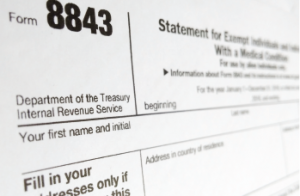
© Om Yos / shutterStock.com
While still awaiting final passage through Congress, the Tax Cuts and Jobs Act, once it is enacted into law, alters a number of tax provisions that will affect people of different income levels and business structures in varying ways. According to analysis by the Tax Policy Center, the new tax bill is expected to reduce taxes for all income groups through 2025, with the largest reductions going to the highest income earners (i.e., those in the 95th to 99th percentile). A percentage of taxpayers are expected to see an increase in their taxes and this percentage will grow over time from 5% in 2018, 9% in 2025, and 53% in 2027.
Explore This Issue
April 2018The effects of the tax law changes on physicians, and otolaryngologists in particular, are still not completely clear, but given the higher income levels of many otolaryngologists, most should see a slight income tax rate reduction. “The part of the bill that will impact all otolaryngologists, whether they are employed or own their own practice, is that most will see their tax rate decrease slightly,” said Jed Grisel, MD, an otolaryngologist at Head & Neck Surgical Associates in Wichita Falls, Texas.
Whether or not an otolaryngologist is employed or owns a practice will, however, determine other tax changes under the new tax bill. A breakdown of some of these expected changes, along with the anticipated effects of the new tax bill on rural practices, is discussed subsequently. Nothing is yet set in stone, and a good deal of uncertainty still remains about details of the tax bill. Otolaryngologists are advised to work closely with their accountants to ensure they are fully compliant and will reap the full benefits of the new bill.
Pass Through Entities (S-Corp, PLLC, Partnership)
Privately owned practices, including S Corporations, professional limited liability companies (PLLC), and partnerships, are considered “pass through entities” under the new tax bill and are entitled to deduct 20% of their income to lower their overall taxable income.
Reducing the taxable income for pass through entities is designed to help these entities use the saved monies to reinvest in their businesses. Many otolaryngologists and other specialists may not be eligible for this deduction, however, given the restrictions on eligibility based on income. Under the new law, high-earning physicians (and others, such as lawyers) will not be able to claim the deduction. “Unfortunately, most professional workers such as doctors and lawyers have been excluded from this deduction,” said Dr. Grisel, adding that the rationale to exclude professional workers from this deduction is based on what he says is flawed logic—logis that assumes, for example, that physicians don’t have the same type of significant overhead as do other types of pass-through entities.